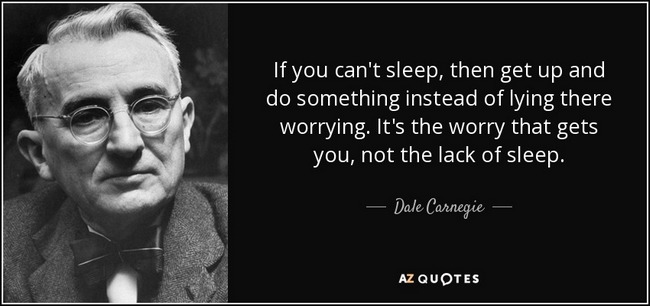I Can’t Sleep …
It seems to be hitting most of us now, at least from time to time. We’re finding it difficult to sleep, or to have any kind of recognisable sleep pattern. The reason’s not that difficult to find … worrying about Covid … about the risks of getting infected … about government restrictions … about our kids’ schooling … about money troubles … the list just goes on and on. And the result of it all is that we’re worrying … and that’s usually the root cause of sleep problem, one way or another. Now, if we could only stop all this worrying … anyway, let’s not worry about that 🙂
A few ideas that might help
I can’t hope to give anyone definitive answers to solving all the problems that beset us at the moment, but what I can do is float a few good ideas as to how to deal with the sleep problem. And maybe even a few ideas worth thinking about as far as all those problems go, or at least as far as worrying about them goes.
 The first thing I want to say is the most blindingly obvious thing about worry, but I still think it’s helpful to say it; worrying, in itself, never solved anything. In fact, the more you consider it in the cold light of day (makes a change from fretting over it all night, instead of sleeping) … the more you consider it, the more you realise worrying is a truly pointless activity. Not only does it solve nothing, but it disturbs your peace of mind to the point where your sleep, and consequently your health, is affected.
The first thing I want to say is the most blindingly obvious thing about worry, but I still think it’s helpful to say it; worrying, in itself, never solved anything. In fact, the more you consider it in the cold light of day (makes a change from fretting over it all night, instead of sleeping) … the more you consider it, the more you realise worrying is a truly pointless activity. Not only does it solve nothing, but it disturbs your peace of mind to the point where your sleep, and consequently your health, is affected.
You have a problem. Okay, I’m not challenging that. We all have problems. But what do you do about it? Two possible courses of action – do something positive about it, or do something negative (or just ignore it and do nothing, which just results in endless worry). On the positive side, you might be able to come to some conclusion about how to fix the issue, and taking action to do that is a hundred percent better than the alternative. In fact, taking action in itself is a whole lot better than worrying, which is usually accompanied by moping around and doing nothing.
What’s on your mind?
So, here’s a suggestion: sit down … get yourself comfortable … close your eyes and take a deep breath … and settle in for a few minutes of constructive thinking. Stop all this convoluted so-called thinking that is just another name for mindlessly worrying. Maybe you’ll come up with some answers. There might be a way to go about improving the situation, and it can often come out of the blue just by settling down and actually thinking about it, clearly and impartially, as though from a distance.
Whether this is the result of your subconscious mind finally being listened to, or perhaps it’s simply the way the Universe works, who knows. In situations like this, when you sit and let your thoughts flow constructively, it can often seem like there’s a guiding hand leading you to the answer. Maybe that is the case, or maybe that’s just how it feels. Does it really make much difference?
Anyway, that’s the simple way to go about trying to fix whatever problem is on your mind. And just doing that, and hopefully reaching a conclusion about some action you can take, that can sometimes be all it takes to finally put your mind at rest and allow sleep to return to some kind of normal routine.
Now, about the actual sleep problem, assuming it still persists … can this be fixed? Well, there’s a few ways to nudge your brain in the right direction, and I’m going to point a few out to save you worrying what they might be … ‘cos as we’ve just established, worrying won’t achieve anything, so let’s not go there.
Building a new sleep routine
 First, do what you can to instal a new sleep routine. This might mean shutting things down at a certain time in the evening and gradually preparing for sleep. Make a ritual of it and your brain will be coaxed in the right direction despite itself. So, about ten in the evening (or whatever time feels right for you), start getting ready for bed. That means turn off the TV. Turn off the computer. Turn off the radio. Turn the lights down, if you’re still downstairs. Start mentally and physically preparing for a good night’s sleep. And this mental attitude, this expectation of a coming night’s sleep, is important; stop all this negativity, assuming this is going to be another night of never really getting to sleep, or sleeping fitfully and waking groggy and miserable.
First, do what you can to instal a new sleep routine. This might mean shutting things down at a certain time in the evening and gradually preparing for sleep. Make a ritual of it and your brain will be coaxed in the right direction despite itself. So, about ten in the evening (or whatever time feels right for you), start getting ready for bed. That means turn off the TV. Turn off the computer. Turn off the radio. Turn the lights down, if you’re still downstairs. Start mentally and physically preparing for a good night’s sleep. And this mental attitude, this expectation of a coming night’s sleep, is important; stop all this negativity, assuming this is going to be another night of never really getting to sleep, or sleeping fitfully and waking groggy and miserable.

Sorry ... MEMBERS ONLY!
UNLOCK FOR FULL EXERCESS!EXERCESS is an online community of people who want to seriously improve their health and fitness, both mental and physical.
JOIN FREE TODAY!
… and get complete and unfettered access to an absolute goldmine of valuable information.
Already a member? Sign in!
